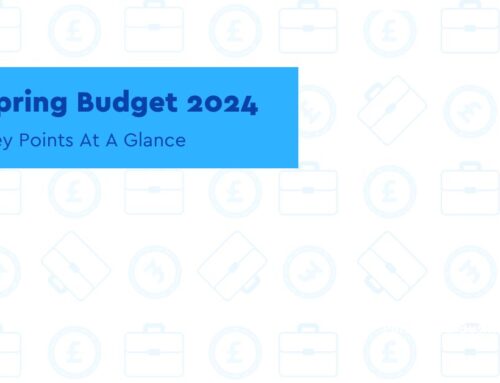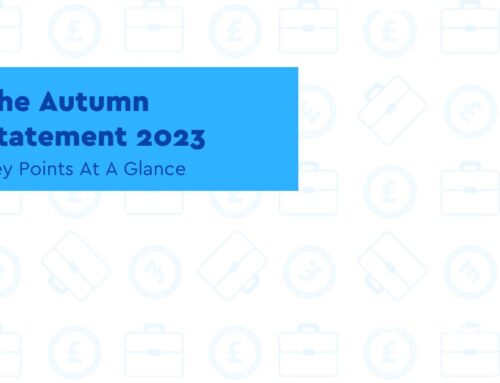SSP three-day wait to be reinstated in 2022
Key Points
- During the coronavirus pandemic, the government suspended the three-day wait for COVID-related SSP
- The amendment to the SSP rules was made in the Coronavirus Act 2020 which contains an expiry date
The standard three-day waiting time for statutory sick pay will be reinstated for coronavirus-related claims from March 25, 2022, unless the government intervenes.
Under standard rules in the UK employers do not have to pay statutory sick pay (SSP) to an employee until the fourth qualifying day in the Period of Incapacity for Work (PIW). The PIW is a period of sickness lasting four or more consecutive calendar days, not all of which may be qualifying days. The standard rule, therefore, is to look at the PIW, look at the qualifying days and the first three are called waiting days.
During the coronavirus pandemic, the government suspended the three-day wait for COVID-related SSP, meaning that employers must pay it from the first qualifying day.
The amendment to the SSP rules was made in the Coronavirus Act 2020 which contains an expiry date, under which the suspension of the general law will cease two years after the date of Royal Assent.
This means that, unless there is an intervention to continue the measure, coronavirus-related SSP waiting time will automatically revert to three days on March 25, 2022.
In this event employers will need to:
- Consider two weeks before the end of the 2021/22 tax year any changes that their payroll software may have made to accommodate the suspension of waiting days. This will have the effect of removing “coronavirus-related SSP” and reintroducing waiting days for all absence types.
- Tell employees claiming coronavirus-related SSP from 25 March 2022 that their SSP will be paid from the fourth day qualifying day in the PIW, not from day one.
Following the suspension of the waiting period, small employers were able to recover the cost of the additional three days SSP from HMRC under the SSP recovery scheme (SSPRS) but, this scheme ended at the end of September and from this date employers must cover the additional costs themselves.
Any outstanding claims under the SSPRS must be submitted by the end of this year (see HMRC’s guidance).
Under the Coronavirus Statutory Sick Pay Rebate Scheme, you can only claim for employees who were off work on or before September 30, 2021.
The scheme covers all types of employment contracts, including:
- Full-time employees
- Part-time employees
- Employees on agency contracts
- Employees on flexible or zero-hour contracts
- Fixed term contracts (until the date their contract ends)
You must submit or amend claims on or before December 31, 2021.
The rising wages impact on small businesses
Key Points
- The wage increase will ultimately inflate business overheads, eating into the profit potential for SMEs
- However, the potential for more disposable income amongst young spenders could benefit UK SMEs
Last month, it was announced that next April (April 1st, 2022) the National Living Wage and National Minimum Wage are set to increase.
Subsequently, this has had a knock-on effect with the Real Living Wage now being raised to £9.90 for the 300,000 employees whose employers have voluntarily joined the scheme.
While the overall pay rise has been welcomed by younger workers, offering greater financial security for the 2 million people in the UK on minimum wage, a significant group that was adversely affected by the pandemic. However, it has garnered some criticism, some saying the pay rise is effectively meaningless in the face of tax increases.
What does the rise in minimum and living wages mean for small businesses?
Well, it could impact UK SMEs that rely on students or part-time seasonal employees that prop up businesses in the retail, hospitality, and tourism sectors during busy holiday periods. The wage increase will ultimately inflate business overheads, eating into the profit potential for SMEs still reeling from the damage caused by COVID-19.
Wage Increases in 2022:
National Minimum Wage under 18s: £4.62 – £4.81
National Minimum Wage 18-20 yrs old: £6.56 – £6.83
National Minimum Wage 21-22 yrs old: £8.36 – £9.18
National Living Wage 23 yrs old +: £8.91 – £9.50
Real National Living Wage: £9.90
With graduates looking to benefit the most from the wage increase, businesses that once benefitted from the knowledge and training of recently graduated young professionals might find themselves cut off from hiring affordable, skilled workers as they look towards companies that support the National Living Wage.
It could also result in small businesses being forced to operate with fewer staff, limit their opening times, or move completely to part-time only contracts. In order to keep the wheels turning, employers might have to change their seasonal employment plans, adjusting their hiring process to take on younger, unskilled workers and spending the time training them to circumvent the higher staff costs of older employees.
However, with the wage increase, we could see an increase in spending, particularly amongst younger professionals who, as trends suggest, have taken on the mantel of ‘shopping small’ or ‘buying local’ over the past year.
The potential for more disposable income amongst young spenders could benefit UK SMEs, particularly ones that have an online presence and meet important customers values gaining popularity, like sustainability and community involvement.
New rules for savers with small pension pots
Key Points
- The change is primarily designed to help individuals who regularly take on short-term work
- The DWP first announced proposals to ban flat fees on small pension pots earlier this year
Plans to protect small pension pots from being eroded by charges will be introduced next year in a move which the government says ‘puts savers’ interests first.
The Department for Work and Pensions (DWP) set out the rules which will introduce a threshold at which pensions providers will no longer be able to charge a flat fee to savers.
The rules mean pension savings invested in the default funds of schemes used for auto-enrolment with a value of £100 or less will be exempt from paying flat fees from April next year.
The change is primarily designed to help individuals who regularly take on short-term work and change jobs frequently, as there is a greater chance they will be automatically enrolled into new workplace pensions a number of times, building up a collection of small deferred pots.
Guy Opperman, minister for pensions, said: “We all know what a success automatic enrolment has been in getting more people saving into private pensions – with over 10 million employees paying into a workplace pension since 2012.
“But for some, particularly those who regularly take on short-term work and change jobs frequently, there is a greater chance that they will be automatically enrolled into new workplace pensions a number of times, building up a collection of deferred small pots.
“Removing flat fees on pension savings worth less than £100 will provide a boost to hundreds of thousands of people and help them enjoy the retirement they deserve.”
The introduction of the threshold – known as the ‘de minimis’ – will complement plans to introduce pensions dashboards, which will allow individuals to keep track of their small pension pots more easily, helping them to better plan for retirement.
The DWP first announced proposals to ban flat fees on small pension pots earlier this year.
UK announces plan to boost overseas trade
Key Points
- The 12-point export strategy is intended to help firms seize new opportunities in global markets
- Government agencies such as UK Export Finance will offer new services to help UK exporters to secure business
The government has announced plans to boost the UK’s annual exports to £1 trillion by the end of the decade.
The 12-point export strategy published by the Department for International Trade will give businesses the tools they need to export and reap the benefits of free trade deals.
The Made in the UK, Sold To The World plan is intended to help firms seize new opportunities in global markets. Last year, the UK exported about £600bn in goods and services. But only one in 10 British firms trades overseas.
The strategy includes an Export Support Service that offers a one-stop shop for exporting advice, and the launch of a new UK Tradeshow Programme better-tailored to help businesses, particularly those outside London and the South East, to attend and promote their products around the world.
As part of the 12-point plan, government agencies such as UK Export Finance will offer new services to help UK exporters to secure business.
Minister for Exports, Mike Freer MP, said:
“We know businesses are at different points on their exporting journey. Some are already successful exporters but want to sell more products or reach new markets. Others are yet to take the leap and export for the first time.
“Whatever your story, our tailored support, expertise and international network is here and ready to help you maximise your ambitions and sell to the world.”
Unlocking the UK’s exporting potential will help to boost the UK’s economy, with government commissioned research estimating that exports supported 6.5 million jobs across the UK in 2016, and showing that exporters pay higher wages. Separate analysis shows that goods exporting businesses are on average 21 percent more productive.
The UK Export Academy expansion will offer SMEs in all parts of the UK, including Scotland, Wales and Northern Ireland the chance to learn how to navigate the technicalities of exporting and how to find new opportunities in overseas markets.
Federation of Small Businesses National Chair, Mike Cherry said:
“As the voice of the UK’s small business community, FSB has been pleased to help develop today’s Export Strategy. For too long small firms have been faced with difficulty getting onto the exporting ladder, so we’re pleased to see many of these fundamental issues tackled head-on in this export plan.
“In our recent export report, we proposed simplifying how small firms can export, improving access to tradeshows support service and information on FTAs, as well as boosting trade skills. These will go a long way to seeing the numbers of exporters rise. Increasing small business exports will drive prosperity and growth, protecting the economic recovery from COVID.”
Weekly HMRC, Gov’t and tax updates
Updated guidance: VAT recovery on building materials
HMRC recently issued updated guidance to confirm that it now accepts that manual window blinds and shutters are “building materials” for VAT purposes and therefore eligible for zero-rating by contractors and VAT recovery by DIY builders.
If you are a contractor supplying and installing certain roller blinds and shutters as part of the construction of new dwellings, you should be zero-rating the goods as well as your installation services. If you have charged VAT on these items since October 5, 2020 you should issue a credit note for this VAT.
If you are developing new homes for sale and have incurred VAT before October 5, 2020 on roller blinds and shutters but have not recovered it, this is now seen as an error and you are entitled to go back four years to correct this in line with other VAT errors.
For the full list of items you can or cannot claim a VAT refund for under the DIY Housebuilders’ Scheme, click here.
HMRC calls for early R&D submissions
Innovative businesses that receive tax relief through research and development (R&D) SME tax credits are being urged to submit their latest claims urgently.
HMRC said firms should “submit claims as soon as possible to avoid a delay in receiving payments between December 2021 and January 2022”.
The tax authority issued the reminder as many companies have their accounting year-end aligned with the end of the calendar year.
This period of the year results in HMRC receiving a “significant increase” in the number of companies submitting claims.
HMRC said: “Between December 2021 and January 2022, we expect to be dealing with higher volumes of R&D claims.
“While we remain committed to our aim of processing 95% of R&D tax credit claims submitted online within 28 days of receipt, we may take longer during the peak period.”
SME R&D tax relief allows companies to have an extra 130% deducted from their qualifying costs from their yearly profit, as well as the normal 100% deduction, to make a total 230% deduction.
Alternatively, a company can claim a tax credit if it makes a loss worth up to 14.5% of the surrenderable loss.
UK house prices increase by 11.8% in year to September 2021
The UK’s average house price increased by 11.8% over the year to September 2021, up from 10.2% in the twelve months to August 2021, according to data from the Office for National Statistics (ONS).
The average UK house cost a record high of £270,000 in September 2021, £28,000 higher than this time last year.
Growth in prices was fastest in the North West (16.8%), the East Midlands (14.7%) and the North East (13.3%), while growth was slowest in London for the tenth month in a row (2.8%).
According to the ONS, growing house prices can be explained by temporary changes to taxes on residential property sales, including the stamp duty land tax (SDLT), which may have allowed higher prices as buyers’ overall costs were reduced.
From July 2020, a SDLT holiday saw no tax incurred on property sales valued up to £500,000 in England, which was decreased to £250,000 from July before returning to its previous level of £125,000 at the end of September 2021.
EV charging in all new homes from next year
Electric vehicle (EV) charging points will be legally required to be installed in new build homes from 2022 as part of a ‘electric vehicle revolution’.
Under the plans, existing building regulations will be altered to require every new home, including flats and dwellings created from a change of use, to have EV charging point infrastructure.
This will mean that there will need to be “at least” one charging point per dwelling with “associated parking”.
With the majority of EV charging happening at home, this will mean people can buy new properties ready for an electric vehicle future.
In addition, residential buildings undergoing major renovation with more than 10 parking spaces will need to have at least one electric vehicle charge point for each dwelling with associated parking.
Get In Touch
At Morgan Reach, we understand every business needs a little help now and again-especially when it comes to the financial side of things. Therefore, to help our clients and visitors we endeavour to cover as much of the business news as possible. If you are self-employed or run a business and need assistance and advice on how these news could make a difference to you or your business, feel free to get in touch with the experts at Morgan Reach. Our business growth experts at Morgan Reach will guide you through what support is available for you or your business as well as the latest news that may affect you.







